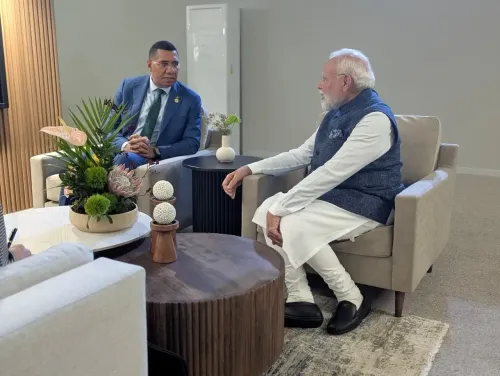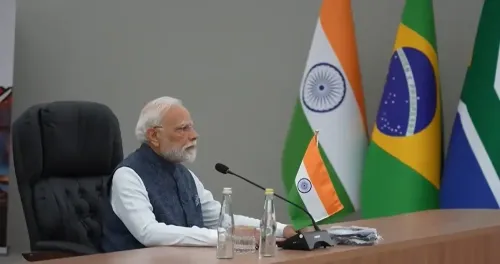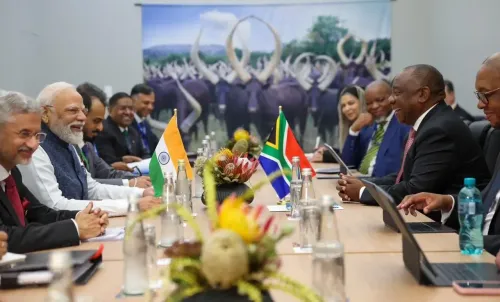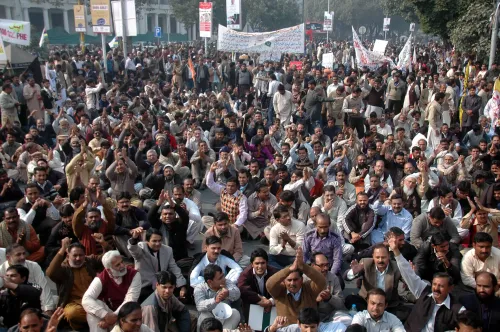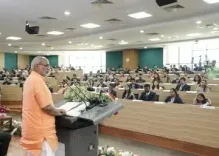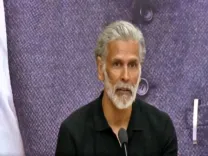How does global climate cooperation endure amid geopolitical turbulence?
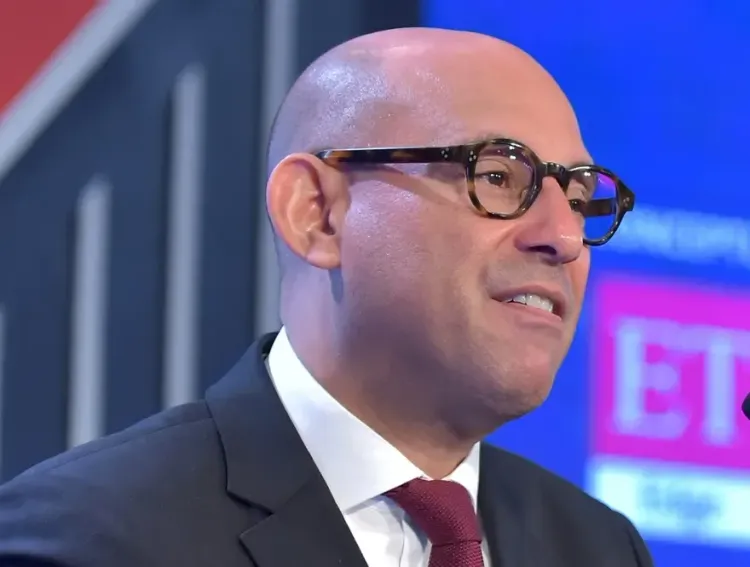
Synopsis
Key Takeaways
- Global climate cooperation is resilient despite political challenges.
- Nations reaffirmed their commitment to sustainable action at COP30.
- Agreements focus on adaptation finance and support for vulnerable countries.
- The transition to a clean economy is vital for the future.
- Continued momentum is essential for future climate action.
Belem (Brazil), Nov 23 (NationPress) - Global climate cooperation continues to thrive and demonstrate resilience amid challenging political circumstances, according to UN Climate Change Executive Secretary Simon Stiell.
“We anticipated that this COP would occur under turbulent political conditions. Denial, division, and geopolitics have significantly impacted international cooperation this year,” Stiell remarked in a statement reviewing the outcomes of the 30th UN Climate Change Conference (COP30) on Saturday (local time).
Nonetheless, he emphasized that nations reaffirmed their commitment to taking action. “COP30 has proven that climate cooperation is vibrant and active, ensuring humanity remains engaged in the struggle for a sustainable planet, with a steadfast commitment to maintaining 1.5 degrees Celsius within reach,” he stated.
“I am not suggesting we are victorious in the climate battle. However, we are undeniably still in the fight, and we are pushing back,” he added, noting that 194 countries expressed “solidarity and unwavering support” for climate initiatives.
He indicated that the global community conveyed a unified message regarding the trajectory of international climate actions: “The transition to low greenhouse gas emissions and climate resilience is irreversible and represents the future trend.”
Stiell underscored agreements on a fair transition, the goal to enhance adaptation funding threefold, and increased assistance for nations most affected by climate-related disasters, as reported by Xinhua news agency.
These initiatives, he asserted, will facilitate that “every nation and every individual can benefit from the extensive advantages” of the clean economy.
He pointed to advancements made via the COP30 Action Agenda, which includes significant pledges for clean energy grids, the preservation or restoration of forests, land, and oceans, alongside efforts that will bolster the resilience of hundreds of millions. Stiell emphasized that these results represent “tangible progress in areas that matter most to billions of people.”
Stiell urged the world to expedite the execution of national climate strategies and sustain the momentum generated in Belem. “As we depart, our responsibility is to keep climate at the forefront of the agenda for the next half-century,” he asserted.
The COP30 concluded on Saturday in Belem, the capital of the Amazonian state of Para, with the adoption of the final document, “Global Mutirao: Uniting humanity in a global mobilization against climate change,” following nearly two weeks of negotiations under the Brazilian presidency.

